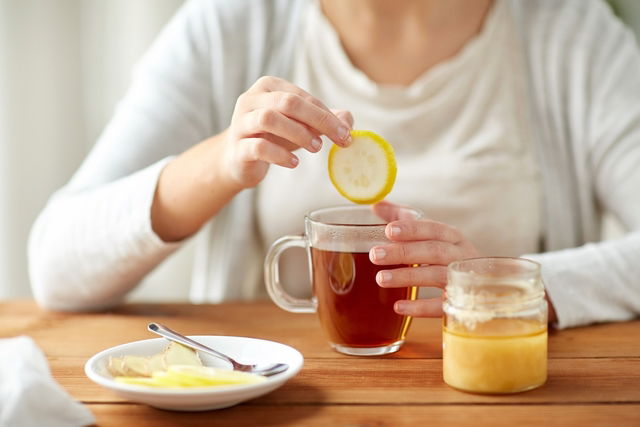Gastritis is an inflammation of the stomach walls that can cause symptoms like stomach pain, indigestion, frequent burping and a burning sensation in the stomach. It can be caused by excessive alcohol intake, chronic use of anti-inflammatories, H. pylori infection, or as a result of stress or anxiousness.
It is important to identify the cause of the gastritis, as only then can appropriate treatment be determined. Treatment can range from diet changes to the use of prescription medication. There are medications available that can decrease stomach acid production and protect the inflamed mucus lining.
If you suspect you have gastritis, you should seek a medical consultation with your family doctor, or proceed to the hospital if your symptoms are very intense. You may be referred to a gastroenterologist to confirm diagnosis and initiate treatment.

Main symptoms
The symptoms of gastritis can arise after intake of fatty foods, after an anxiety attack or even with stress. Symptoms occur due to inflammation caused by increased production of stomach acid. The most common symptoms of gastritis include:
- Stomach ache or abdominal pain, usually following a meal or after fasting
- Bloating, particularly after meals
- Nausea or vomiting
- Feeling full
- General malaise
- Burning sensation in the stomach
- Excess gas, either burping or flatulence
If these symptoms arise, it is important to see a gastroenterologist. He or she will assess you to confirm a diagnosis and initiate treatment as indicated. Check out our online gastritis symptoms quiz to assess your probability of having gastritis.
Possible causes
There are many things that can contribute to inflammation in the stomach or that can eat away at the stomach lining. The most common causes are:
- H. pylori infection: This is a type of bacteria that lodges onto the stomach walls and destroys the protective mucous lining. This causes inflammation in the stomach.
- Frequent use of anti-inflammatories, like ibuprofen or naproxen. These types of medications also eat away at the protective mucus lining of the stomach, which exposes the stomach walls to acid, causing inflammation.
- Frequent alcohol intake: Alcohol also irritates the stomach lining, leaving the stomach walls exposed to acid.
- High levels of stress: Stress can interfere with normal digestion, which can cause inflammation in the stomach. Learn mroe about stress-induced gastritis.
In addition, people with autoimmune diseases, like AIDS, are also at a higher risk to developing gastritis.
Also recommended: Pangastritis: Symptoms, Causes, Diagnosis & Treatment tuasaude.com/en/pangastritisDifferent types
Gastritis can be classified based on the type of symptoms causing it. The most common types of gastritis include:
- Acute gastritis, which occurs suddenly due to an illness or injury
- Chronic gastritis, which develops and worsens overtime
- Erosive gastritis, where inflammation occurs to the outer stomach walls as well as the innermost layers of the stomach tissue. This is caused by medication use, Chrohn's disease, or viral or bacterial inflammation.
- Gastritis of the mucous membranes, which occurs when there is damage to both the stomach walls and innermost layers of the stomach tissue, without the presence of an ulcer.
Treatment goals for any type of gastritis are aimed toward reducing inflammation of the stomach walls and healing and lesions present in the mucus lining. It is important to identify the main cause so that the gastritis can be treated.
Treatment options
Gastritis can be managed by applying diet changes, using home remedies and taking prescribed medications.
1. Diet
When maintaining a gastritis diet, you are advised to prioritize cooked and unpeeled vegetables, lean meats, caffeine-free teas and easily digestible carbohydrates, such as white rice, potatoes and white bread.
Furthermore, it is also important to reduce the consumption of foods that promote gastric motility and increase the production of hydrochloric acid, such as coffee, black tea, soft drinks, alcoholic beverages, very fatty and spicy foods, and sauces, for example. Find out what the diet for gastritis should be like.
Read more about the gastritis diet that your doctor and registered dietitian may recommend.
2. Medications
Some medications for gastritis that your doctor may prescribe include stomach acid inhibitors, such as omeprazole, pantoprazole and cimetidine, and antacids, such as aluminum hydroxide, magnesium hydroxide, calcium carbonate or sodium bicarbonate.
Your doctor may also consider prescribing antibiotics for gastritis caused by an H. pylori infection such as clarithromycin associated with amoxicillin or metronidazole.
Also recommended: Gastritis Treatment: Medications & Home Remedies tuasaude.com/en/gastritis-treatment3. Home remedies
Some home remedies for gastritis are fennel and chamomile tea, as well as natural juices, such as potato juice, aloe vera or kale juice with papaya and melon. These have antioxidant and anti-inflammatory action that can help to relieve indigestion, burning and pain. Check-out other home remedies for gastritis you can prepare to complement your medical treatment.
Is gastritis curable?
Gastritis can be cured when this condition is identified and treated correctly by a gastroenterologist. Many people may find medications like omeprazole, antacids, or antibiotics beneficial to protect the stomach or to treat an H. pylori infection.
Possible complications
Gastritis, when not treated properly, can lead to complications such as stomach bleeding, peptic ulcers, iron and vitamin B12 deficiency.
Untreated chronic gastritis or gastritis caused by H. pylori can also increase the risk for stomach cancer.
Also recommended: 10 Stomach Cancer Symptoms You Shouldn’t Ignore tuasaude.com/en/stomach-cancer-symptomsPrevention measures
Some tips that can help to prevent gastritis include:
- Set aside time to eat all meals of the day, such as breakfast, lunch and dinner
- Avoid fasting for long periods
- Wash your hands well before eating and after going to the bathroom
- Drink only filtered or boiled water
- Chew food well
- Avoid excessive and/or frequent consumption of alcoholic beverages
- Avoid very fatty foods, such as fried foods, ice cream
Furthermore, it is also recommended to maintain a healthy diet and to only use anti-inflammatory medications as prescribed by your doctor.
